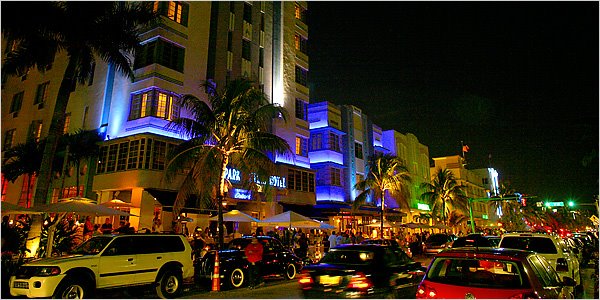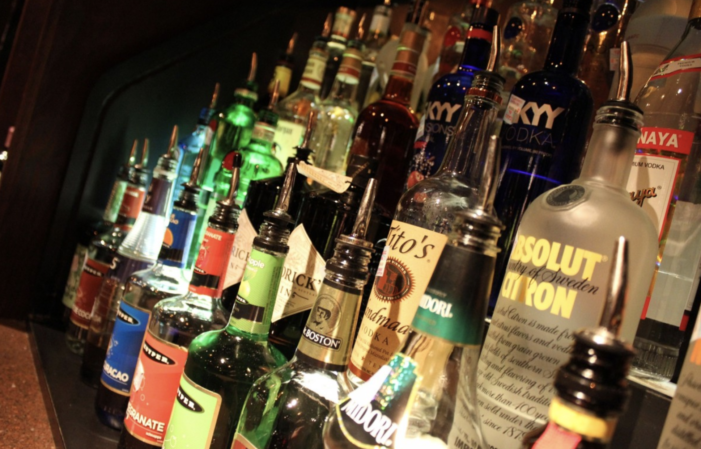Property owners would have to make it up with increased taxes
For weeks, critics of the Miami Beach referendum to rollback alcohol sales from a last call of 5 a.m. to 2 a.m. have said that it would cost at least $40 million in lost tax revenue. But now we have an actual study from an actual economist who says it’s going to cost a lot more than that.
Hank Fishkind, a respected economist who published a similar study in 2017 — right before 65% of the voters rejected a similar measure — also said the 2 AM last call will eat up more than 4,000 jobs and increase the average property owners tax bill by $98 to $190.
Voters in Miami Beach are being asked if the city should ban sales of alcohol from 2 a.m. to 5 a.m. citywide, making last call come three hours earlier. Proponents say it will help curb crime — even though most of the crime happens before midnight. Critics say it will kill businesses on Ocean Drive and could lead the way to the redevelopment and rebranding of the street.
Read related: 2 AM bar ban in Miami Beach could be a real estate con to benefit developers
Fishkind’s study, commissioned by the Miami Beach Chamber of Commerce, said the ban will have a “devastating impact” on the Miami Beach economy just as it starts to recover from the COVID-19 pandemic. Entitled “Economic Impact of Proposed Ban on Sales of Alcoholic Beverages from 2:00 AM until 5:00 AM,” the report specifically outlines losses in property values, city revenue, local jobs and the economy as a whole:
- $73 million in lost property and resort taxes
- $1.4 Billion lost in decreased property values
- $227 million per year in lost revenue to local businesses
- 4,127 lost job
- Increased business and residential property taxes
“The ballot referendum is a bad idea, at an even worse time. The city is in the middle of a fragile economic recovery,” the report states, adding that the estimated budget holes in coming years — from $10.5 million next year to $26 million in 2026 — will be exacerbated.

“The ban will erode critical revenue generating sources which support the city’s budgetary expenditures,” Fishkind explains. The study indicates that people — whether locals, domestic visitors or international tourists — go to Miami Beach, in part, because of the vibrant nightlife it offers.
While the ban would be citywide, Mayor Dan Gelber and other proponents openly admit that the target are the businesses on Ocean Drive. Nightlife on Ocean Drive is South Beach’s brand. The alcohol ban would hurt the brand, the study shows, and could lead to a decrease in visitors.
“Tourism is the dominant economic sector of Miami Beach’s economy. The City hosts over ten-million visitors annually. It has roughly 21,000 hotel rooms. Almost 40% of Miami Beach’s total workforce is engaged in the tourism related sectors of accommodations and food service,” according to the study, which included responses from 28 concierges in city hotels, more than 70% of which said they recommend guests to visit South Beach.
Read related: Diverse voices rise against 2 AM last call rollback referendum in Miami Beach
“Ocean Drive has a global reputation as a unique, exciting, fun place to visit and to party late into the night. The various business establishments (clubs, bars, hotels, restaurants) that would be directly impacted by the ban are vital to the area’s reputation and to its economic functioning. Essentially, the clubs act as one of the area’s main attractions, and the clubs serve to differentiate the area from other beach-oriented communities.
The city will have to recoup those funds, if the ban is implemented, and will likely turn to property taxes. Fishkind’s study estimates the average homeowner would pay between $98 and $190 more a year in city taxes.

Lost jobs will also mean lost income for many Miami Beach workers who don’t have those dollars to spend in the city’s economy, having a ripple effect that will impact drug stores, restaurants, dry cleaners and other businesses as well. To the tune of $205 million.
“Substantial economic costs overwhelm any economic benefit that the ban could provide. Proponents claim the ban would reduce crime on Ocean Drive and in the City. But no analysis was provided,” the study concludes, adding that research for the 2017 measure concluded that such a move would not have a material impact on violent incidents.
“Since the ban is unlikely to reduce crime on Ocean Drive or in the City of Miami Beach, the ban cannot contribute to the brand value of the venue. Instead, the ban puts the brand and the economies of Miami Beach and Ocean Drive at risk to serious economic harm.
The proposed ban is the wrong policy at the wrong time.”

